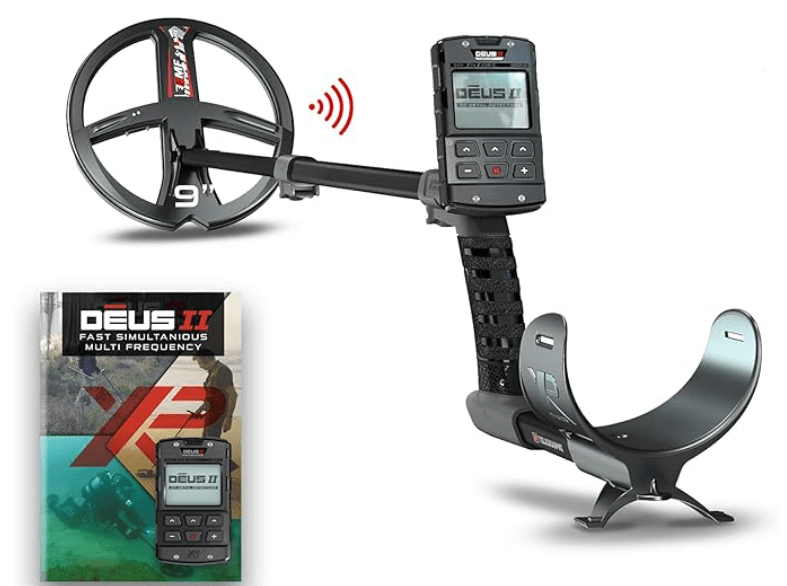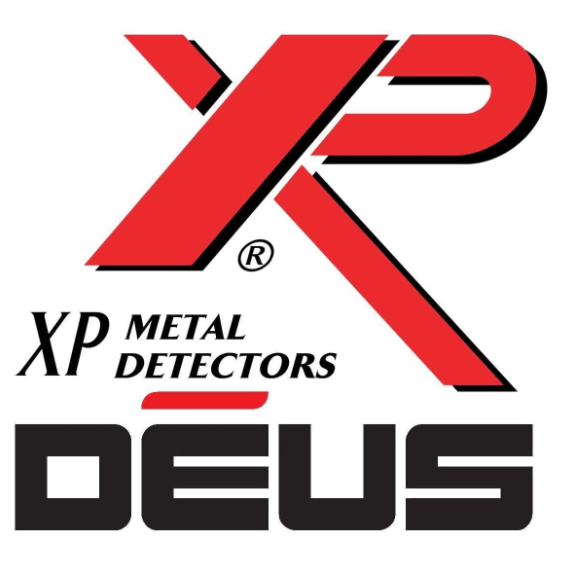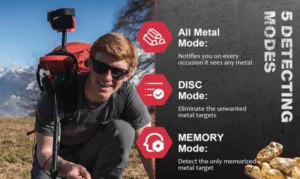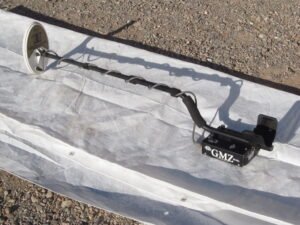Is the Deus II worth upgrading to?
The XP Deus II is the highly anticipated follow-up to the popular Deus I metal detector. Made public in 2021, the Deus II has several improvements over its predecessor. These include wireless functionality and, as you would expect, some enhanced performance for those hunters who are looking to up their game.
Performance & Stability
I found the Deus II to be remarkably stable, even in areas with heavy mineralization. This translates to fewer false signals and a smoother detecting experience in the rough ground I was exploring. Additionally, the Deus II’s multi-frequency technology allows for good performance in various ground conditions.
Adjusting for Target Recognition
One of the Deus II’s strengths is its target recognition capability. It really does have great target separation, that enables you to distinguish desirable finds from straight out junk. The customizable audio response is pleasing as you have multiple tone options that refines target recognition.
This is how it works:
- Target ID: The Deus II assigns a number (1-99) to each target based on its size and conductivity. The higher numbers show non-ferrous targets like rings or bracelets. Lower numbers often point towards ferrous objects like cans and auto parts.
- Visual Representation: The display has a graphical representation alongside the Target ID. You see a bar moving left (iron) or right (non-ferrous).
Advanced beginners will probably just use the automatic target ID. But you can fine-tune it for better accuracy:
- Discrimination Notch: This allows you to notch out unwanted target ID ranges (e.g., low numbers for iron junk). Use the up/down arrows near the discrimination value to adjust the notch range.
- Reactivity: This setting controls how sensitive the detector is to faint targets. A higher reactivity will pick up weaker signals but might also increase false positives. Adjust it using the up/down arrows on the “Reactivity” menu.
The discrimination notch and reactivity settings can take some getting used to. It can be frustrating getting the right settings when all you want to do is just cover some ground. You just have to remind yourself: patience, patience, patience…
Audio Response
The Deus II offers a variety of audio response options, including the classic Deus tones and new somewhat eery squarewave tones. This lets you personalize the audio feedback to suit your preferences and give you a fighting chance of interpreting target signals.
To play with the audio response options in the Deus II, you press “Menu,” then “Audio.” You get the standard up/down arrows to adjust the volume. Or you can pick “Audio Response” to set how clear faint targets sound. The higher the number = stronger signal.
Ground Balance
The Deus II’s automatic and manual ground balancing features effectively counteract ground noise, ensuring accurate target identification. This is particularly important in areas with high mineral content, which can mask the valuable metal hiding underneath.
Mineralized ground conducts electricity like desired targets, causing false signals. Detectors use multi-frequency or ground balancing to counter these electromagnetic responses.
Salty soild near the beach is a real mineralized culprit and often hard to search on. Another is black sand (too much iron oxide). The Deus II can cope with this, and you may get an advantage if you’re one of the few searching these areas because you’ve got the equipment to do it.
Deus II Programs
The Deus II comes pre-loaded with numerous programs for various detecting scenarios, like park treasure hunting, beach detecting, and chasing relics behind barnyards. Additionally, it allows for creating custom programs to fine-tune your Deus II for specific locations. This is useful if you cover different terrain. If you just comb the beach, it’s probably a waste of time.
Deus II compared to Deus I
The Deus II offers several advantages over the Deus I. It boasts wireless connectivity, improved target separation, and more customizable settings. Don’t worry too much if you still have the Deus I, though, because friends still have them and they still give great performance. If you can pick up a Deus I for a bargain, there’s still plenty of life left in them.
Final Thoughts
The XP Deus II is a serious piece of equipment. It’s been well thought out and does the job that pros and advanced beginners expect. It’s kind of pricey compared to its budget-friendly rivals. Not all beginners will need to have the customizable settings as it might be a step too far for folks starting out. But, what the hell, if you have the money you may as well invest in the best.





